Dr Graeme Buchanan
President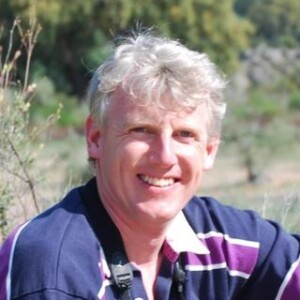
also
Chair, Equality & Diversity Working Group
Graeme is a lifelong birder who, after a Zoology BSc at Aberdeen, worked on upland research in the UK and on island conservation in the Indian Ocean. After completing his PhD on Reed Bunting paternity at Sunderland University, he joined RSPB Centre for Conservation Science. There he researched upland and moorland birds before moving to international conservation, where he has subsequently worked on a broad range of topics and species, many using satellite remote-sensing data. He is currently Head of International, Conservation Science. He has served on BOU Meetings Committee 2010 – 2014 and BOU Council 2014 – 2018.
Dr Emma Cunningham
Vice President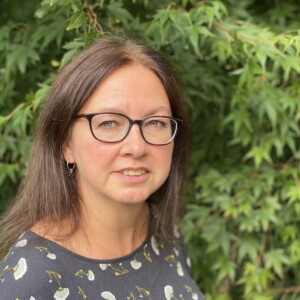
Emma is the Director of The Centre for Adapting to Changing Environments (ACE) where she works to bring together different partners working and conducting research in the natural environment. Her own research is focused on how environmental challenges can impact on animal populations, with a particular interest on wildlife disease. She gained her BSc in Zoology from the University of Glasgow and her PhD in Evolutionary Ecology from the University of Sheffield. A Royal Society Dorothy Hodgkin Fellowship then took her to Cambridge, where she worked on the impact of avian brood parasitism on host reproductive strategies in neotropical birds. After a brief spell at University of California Santa Barbara, she has been based at The Institute of Ecology and Evolution at the University of Edinburgh, initially supported by a Royal Society University Research Fellowship and latterly as a Senior Lecturer in Zoology. Her current ornithological focus is on the impact of parasitism and disease in seabird populations, on which she works in close collaboration with CEH and NatureScot on The Isle of May NNR. She served on BOU Council from 2018-2022 and is a member of the BOU Equality and Diversity Working Group.
Follow Emma on Twitter @_EmCunningham_
Dr Richard Bradbury
Vice President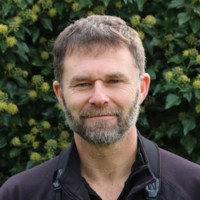
Richard is Head of People Conservation Science at the RSPB’s Centre for Conservation Science. He also holds an Honorary Research Fellowship at Cambridge University and is a member of Natural England’s Science Advisory Committee. His career has taken him from a PhD on avian sex ratios at the Edward Grey Institute in Oxford, to farmland bird research at Oxford and on to leading an RSPB research team working on topics as diverse as renewable energy impacts on birds, climate change risks to birds and ecosystem services. He now leads a team building RSPB’s social science and nature-based solutions capacity. He has previously served the BOU (2003–11) including as Chair of the Meetings Committee and member of BOU Council. Richard is a keen birder, especially on his local Cambridgeshire patch.
Follow Richard on Twitter @Rich_B_Bradbury
Dr Mark Eaton
Honorary Secretary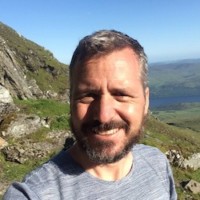
Mark’s work focuses on monitoring, through surveys and the analysis of biological records, and reporting on the state of biodiversity through the likes of red lists, indicators and ‘state of’ reports both in the UK and overseas. After two decades at the RSPB Centre for Conservation Science, he now works as Secretary of the Rare Breeding Birds Panel, and is also Chair of the European Bird Census Council. When not working, he’s most likely to be found birdwatching along the Northumberland coast.
Email Mark | Follow Mark on Twitter @Mark_A_Eaton
Graham Appleton
Honorary Treasurer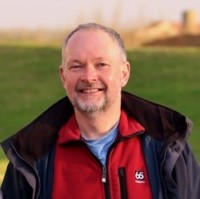
Graham has been the BOU’s Honorary Treasurer since 2017, having been recruited as a Trustee the year before. He had two careers, firstly as a Maths teacher and Deputy Headmaster and latterly as a fundraiser and Director of Communications for the British Trust for Ornithology. While teaching he was the Treasurer of the Scottish Ornithologists’ Club and a Trustee of the BTO. More recently he has been a school governor, chairing the finance committee, and is a Pension Fund Trustee. Graham started doing BTO surveys nearly 50 years ago but his main ornithological focus is on waders, undertaking fieldwork in Iceland and the UK. He has written hundreds of articles for Shooting Times and writes his own WaderTales blog series, translating scientific research about shorebirds into stories that appeal to birdwatchers.
Follow Graham on Twitter @ grahamfappleton
Dr Sonya Clegg
Chair, Grants Committee
Sonya is Associate Professor of Evolutionary Ecology at the Department of Zoology, University of Oxford. Her research focuses on unravelling the evolutionary processes that promote divergence in wild vertebrate systems. She uses a variety of methodologies to answer questions about genomic, morphological, ecological and behavioural differentiation, including the role of natural selection and the ecological and evolutionary importance of disease in bird communities. Sonya’s primary research systems are island colonising birds of south-west Pacific islands, and she runs a long-term study of silvereyes on Heron Island, Australia.
Dr Mark Eddowes
Ordinary member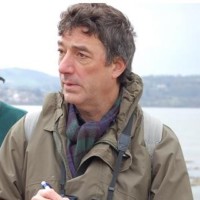
Mark has a formal research training in physical sciences and have worked subsequently in technical consultancy from which he is now semi-retired. He has maintained my childhood interest in ornithology and natural history more widely in a voluntary capacity, primarily with his county ornithological society, the BTO and the BOU. This involvement has stimulated his current primary research interest in the linked themes of long-distance passerine migrant arrival phenology, breeding phenology and range shift in a changing climate. Mark further interests in surveying a wider range of species, including breeding waders and Nightjar locally in the Peak District.
Follow Mark on Twitter @markeddowes
Dr Tom Finch
Chair, Engagement Committee
Tom works is a Senior Conservation Scientist with the RSPB’s Centre for Concervation Science. His interests include conservation, agriculture and bird migration. He completed his PhD at the University of East Anglia in 2016, where he studied the breeding ecology and migration of the European Roller. He sits on BOU Council as an ordinary member, and is also on the BOU Engagement Committee.
Follow Tom on Twitter @ tomfinch89
Dr Catharine Horswill
Ordinary member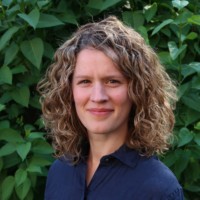
Cat is a Research Fellow with University College London (UCL) and the Zoological Society of London’s (ZSL) Institute of Zoology, and a Visiting Fellow at the University of Cambridge. Her research seeks to understand the mechanisms that determine how seabirds respond to environmental change. To achieve this, she have worked extensively on the population dynamics of temperate and polar species of seabird, addressing questions within two principal themes: empirically examining the processes that shape population change; and developing methods to improve realism in species monitoring and assessments.
She has been involved with the BOU since 2015, as the BOU Conference Support Officer she was a member of both the Engagement and Meetings committees, as an Associate Editor of IBIS and as a regular attendee at annual conferences.
Follow Cat on Twitter @CatHorswill
Dr Rosemarie Kentie
Chair, IBIS Management Committee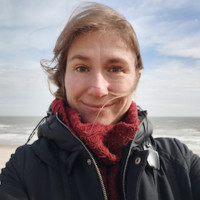
Rose obtained her PhD at the University of Groningen, the Netherlands, on how agricultural intensification affected breeding Black-tailed Godwits. Thereafter she received a Newton International Fellowship and spent two years at the University of Oxford where she studied the combined effects of climate change and habitat quality on timing of breeding and population dynamics of godwits, and how population density affected life history strategies within a population of Soay sheep. Currently she is a postdoctoral researcher at the University of Amsterdam and guest researcher at the Netherlands Institute for Sea Research, where her research is focussed on how Herring Gulls and Lesser Black-backed Gulls react to changing environments. She combines fieldwork in breeding colonies with GPS tracking and diet analyses. In her past and current studies she often works with long-term mark-recapture datasets. After Rose visited her first BOU conference in 2013, she became more and more involved in the society and joined the IBIS Management Committee in 2018 and became an Associated Editor for IBIS in 2019.
Follow Rosemarie on Twitter @RoosKentie
Dr Alexander Lees
Chair, Records Committee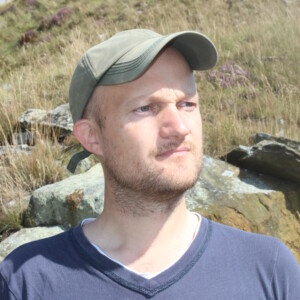
Alex is a Reader in biodiversity at Manchester Metropolitan University, working principally on the impacts of land-use change on bird populations. He has long maintained an interest in avian vagrancy and with James Gilroy recently authored the first book on the subject. As well as serving on the British Ornithologists’ Union Records Committee (BOURC) he is a member of the United Nations Science Panel for the Amazon, the IUCN Species Survival Commission Red List Authority and the Manchester Biodiversity Action Group. He recently retired from the Brazilian Ornithological Records Committee.
Follow Alex Twitter @Alexander_Lees
Dr Julie Miller
Ordinary member 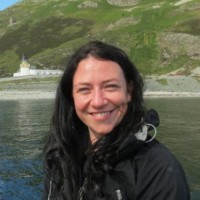
Julie is an ornithologist and seabird ecologist at the University of Glasgow completing her PhD in quantitative modelling of seabird demography, with an applied interest in assessment of impacts to populations from human activities. Passionate about the natural world, Julie is particularly interested in blue-sky questions in ecology, quantitative approaches to assess patterns in data and applied conservation management. Growing up in Glasgow she has a keen interest in social connectivity with nature and accessibility of science to broad audiences.
Dr Catriona Morrison
Chair, Meetings Committee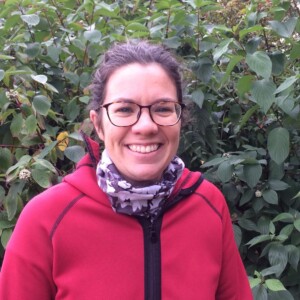
Cat is a post-doctoral researcher at the University of East Anglia. Her primary research interests lie in using citizen science data to understand the demographic and environmental processes influencing the population dynamics of birds, and inform conservation management. She is involved in mentoring and facilitating the development of Early Career Researchers. Cat is an Associate Editor of IBIS and has been a member of BOU Meetings Committee since 2020.
Follow Cat on Twitter @CatMorrison18
Dr Stuart Sharp
Ordinary member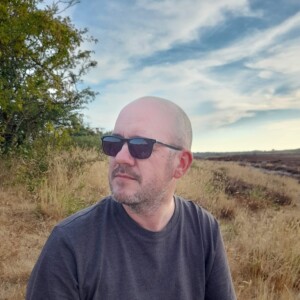
Stuart is a Senior Lecturer in animal ecology at Lancaster University. His current research has two major themes: (1) the population ecology of river birds, including a long-term study of Dippers in Yorkshire Dales National Park, and (2) the ecology and conservation of Afro-Palearctic migrants. He has been an Associate Editor of IBIS since 2017. However, as a lifelong birder and an active ringer, Stuart is equally committed to promoting ornithology outside of academia.
Dr Leila Walker (she/her)
Chief Operations Officer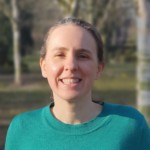
Leila has responsibility for the day to day management and running of the BOU including conferences and events, the business side of the BOU’s journal, IBIS, social media and communications, website development and content management and servicing BOU Council and its Standing Committees.
Follow Leila on Twitter @leilakwalker
Dr Lucy Wright
Chair, Awards Nominations Committee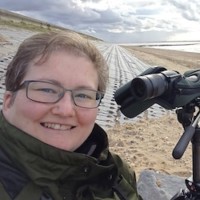
Lucy has a lifelong interest in birds and now work as a Principal Conservation Scientist in the RSPB Centre for Conservation Science. Her career began with various short research contracts before and after a PhD on Woodlark demography. She worked at the British Trust for Ornithology (BTO) as a Research Ecologist and later Research Manager focusing largely on investigating the potential impacts of developments (wind farms, tidal power, airports) on birds and advising on the designation of marine protected areas. She then moved to her current role at the RSPB in 2016, where Lucy leads a small team who provide scientific support for RSPB’s casework relating to planned developments and protected areas, and conduct research into the impacts of offshore wind farms on seabirds.
Lucy is a keen bird ringer, mostly with the Wash Wader Ringing Group, and sits on the BTO’s Ringing Committee that oversees the work of volunteer ringers across Britain and Ireland. She’s an Associate Editor for the BTO journal Bird Study. She believes that diversity, in all its forms, makes us stronger, and she wants to help the BOU to continue its work to improve equality and diversity in ornithology.
Follow Lucy on Twitter @_LucyWright



